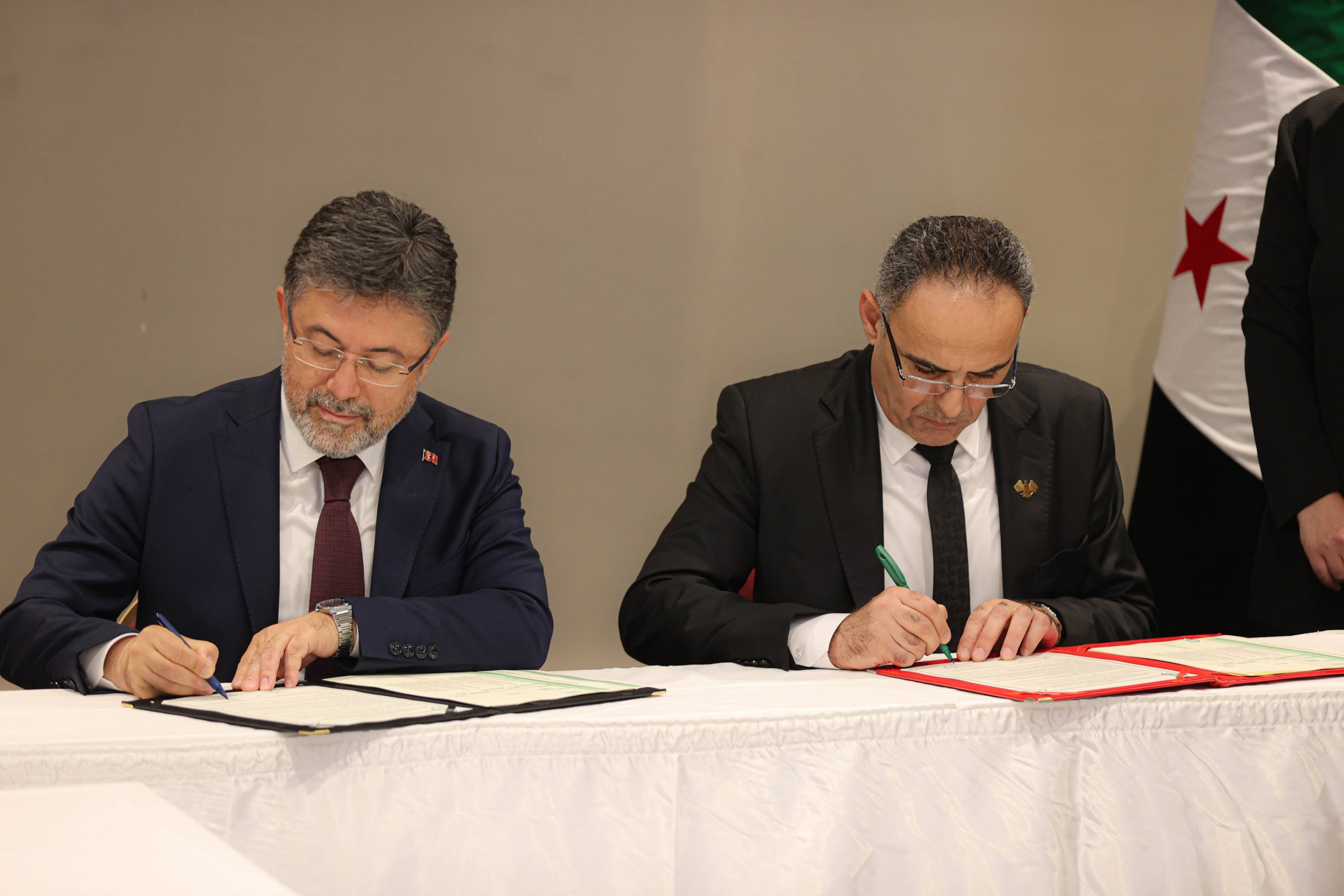Physical Address
Indirizzo: Via Mario Greco 60, Buttigliera Alta, 10090, Torino, Italy
Physical Address
Indirizzo: Via Mario Greco 60, Buttigliera Alta, 10090, Torino, Italy

Türkiye and Syria have agreed on a detailed agricultural cooperation plan aimed at reviving farming in the war-torn country, as Damascus is pressing ahead with efforts to rehabilitate land and infrastructure devastated by more than a decade of conflict.
In Damascus on an official visit, Turkish Agriculture and Forestry Minister Ibrahim Yumaklı said on Monday that concrete steps were being taken to restore agricultural production in Syria.
“Especially to ensure food security, important activities have been carried out related to crop and livestock production,” Yumaklı said. “After 13 years, with the challenges brought by devastated infrastructure, we now need to engage in more serious forward-looking efforts. That is why we are here.”
Ankara, which supported opposition forces in Syria throughout the 13-year civil war that ended in December with the ousting of longtime dictator Bashar Assad, has now become one of the new government’s main foreign allies while positioning itself to be a major player in the country’s reconstruction.
Intensive talks and meetings this year have seen the sides focus on sectors such as energy and infrastructure. Those have since broadened to include finance and agriculture.
According to Yumaklı, Türkiye had already been providing support to the local population in Afrin and other regions since the beginning of the civil war.
The two countries established a joint committee during Syrian Agriculture Minister Amjad Badr’s visit to Türkiye in April to work on agricultural developments. That body has since drafted a time-bound road map covering agricultural revival projects, said Yumaklı.
He noted that Ankara had already sent foot-and-mouth disease vaccines for use in border provinces, and would back the country’s farmer registration and agricultural inventory systems. He also announced plans for a 50,000-square-meter greenhouse complex consisting of 20 blocks.

On Sunday, Yumaklı and Badr held talks in Damascus before they signed an agreement foreseeing cooperation in agriculture.
“Türkiye will continue to support the revival of agricultural production in Syria, and a significant potential will be activated to develop trade between the two countries,” he told Anadolu Agency (AA) on Monday.
Syria’s agricultural infrastructure and lands were largely damaged during the civil war, according to Agriculture Minister Badr, who explained that efforts are underway to restore these destroyed areas.
He said bombardments had damaged cultivated lands, irrigation systems and storage facilities, while military activity such as road building, trenching and mine-laying had rendered large areas unusable.
Badr said the new government is working to gradually reclaim these lands for agriculture and is trying to bring farmland back into productive investment areas.
He stressed the need for joint public and private sector efforts to rehabilitate agriculture, highlighting investment potential in crop and livestock production, agro-industrial development, ecotourism, forestry and the supply and manufacturing of agricultural inputs and equipment.
His ministry is also restructuring its institutional framework, addressing weaknesses, and building human resources capacity to strengthen the sector, Badr added.
Badr also noted that a long-term strategic plan has been prepared and short-term strategies are being encouraged for Syrian agriculture in the face of challenges like climate change and water scarcity.